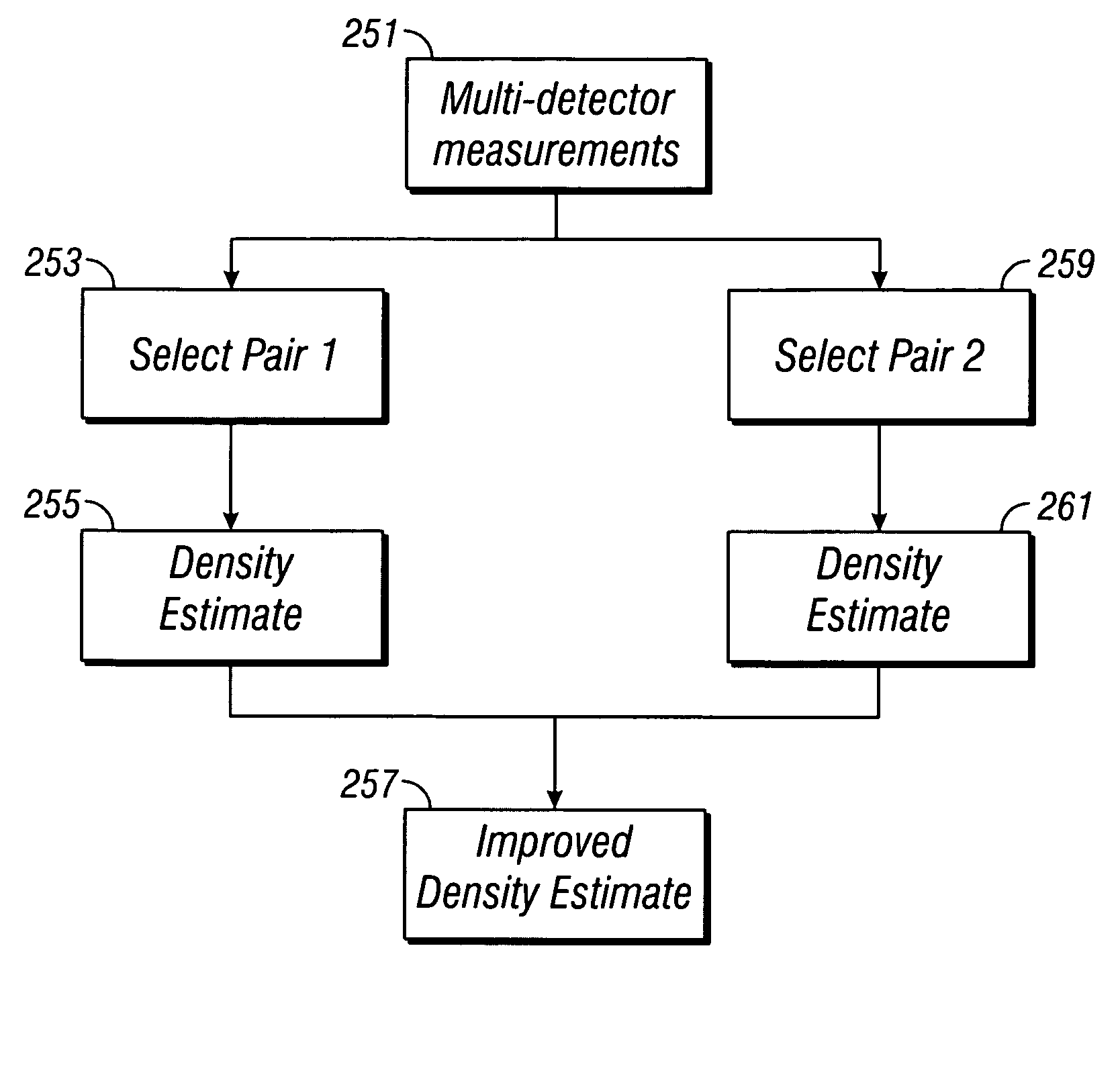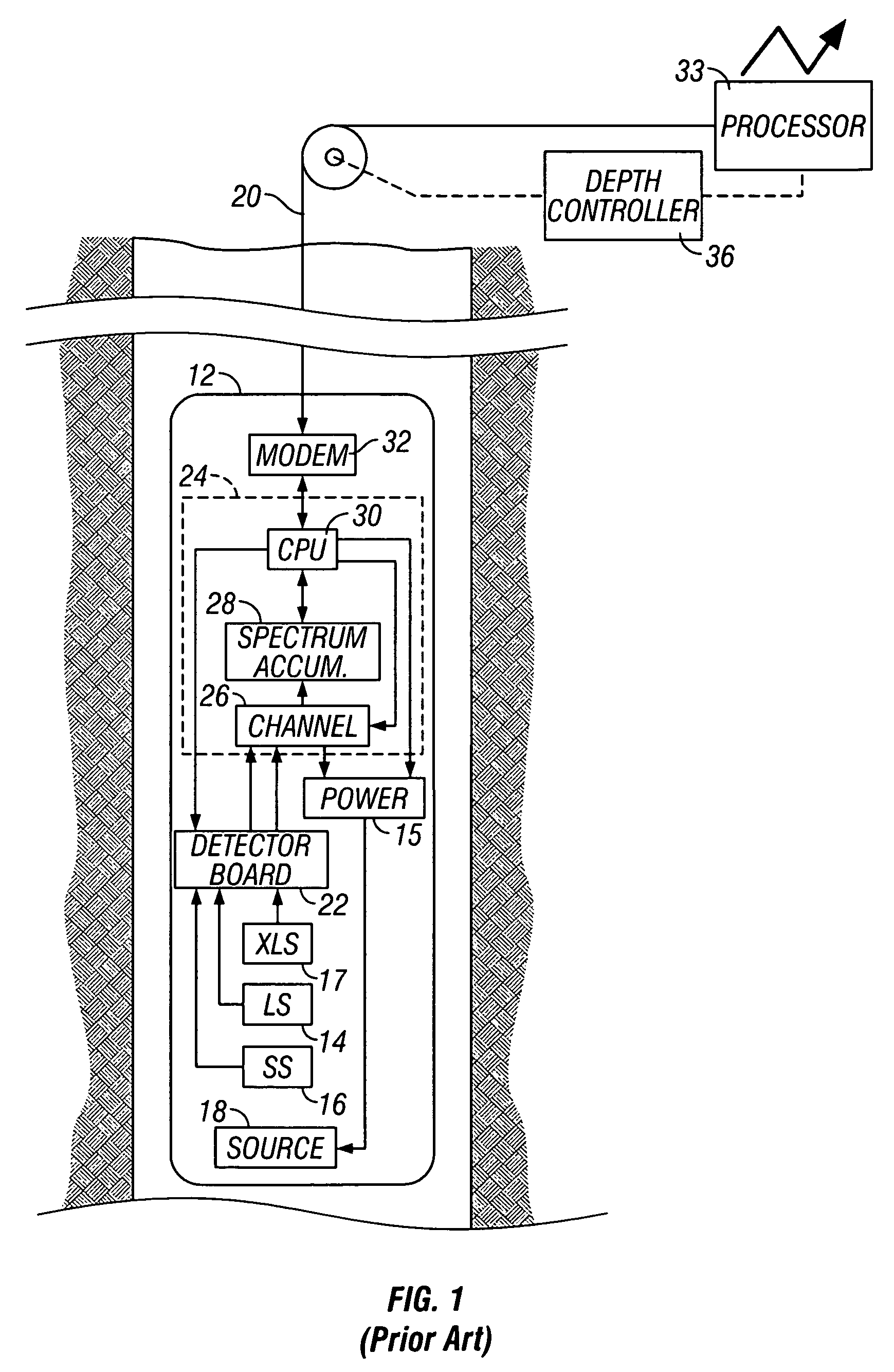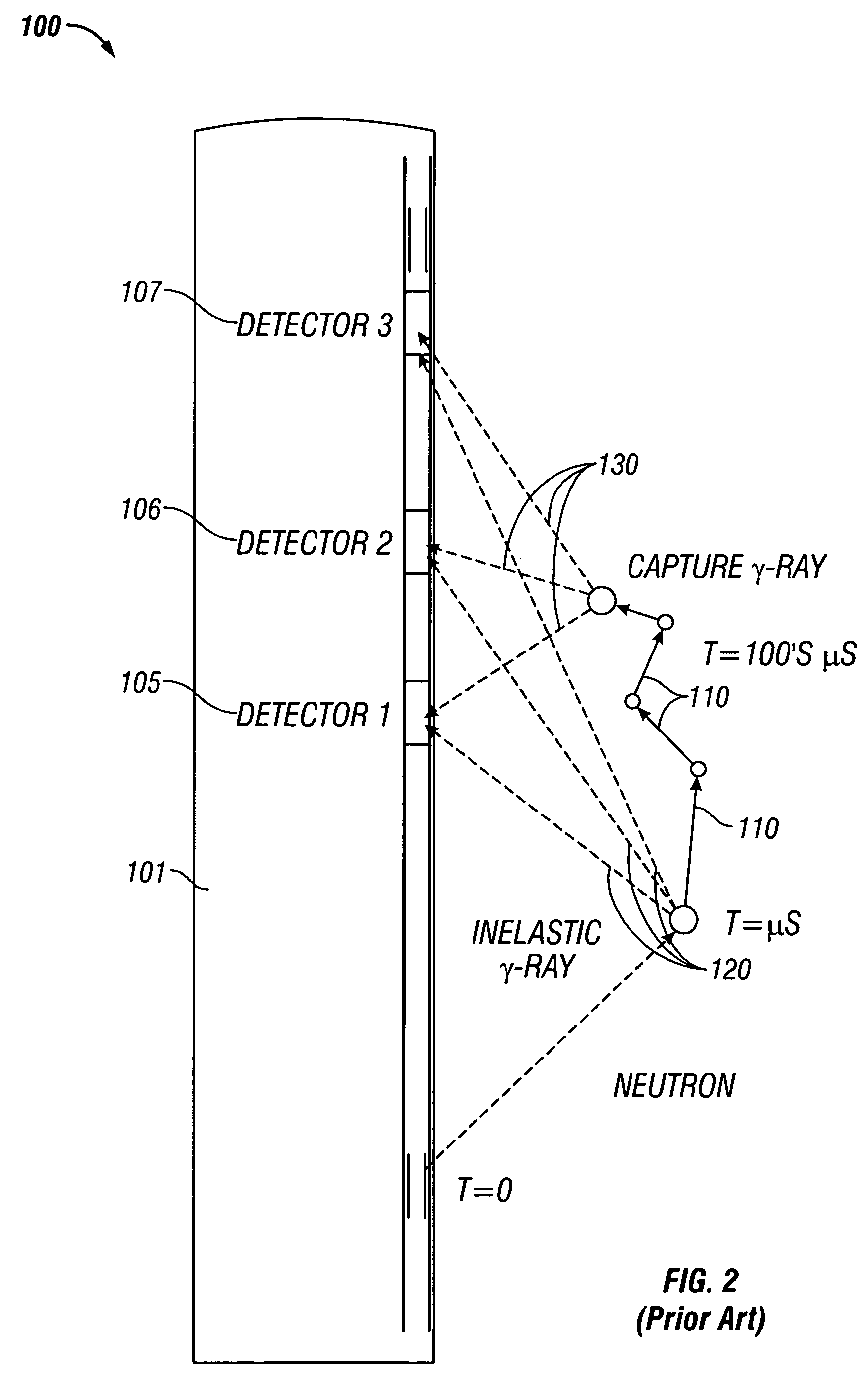Method and apparatus for an improved formation density indicator using pulsed neutron instruments
a technology of pulsed neutrons and indicators, applied in the field of oil and gas well logging tools, can solve the problems of difficulty in signal passing between the tool and the reservoir, cement can confuse the measurement of formation properties, and the response of chemical radioactive source tools is limited, so as to achieve the effect of improving the density estima
- Summary
- Abstract
- Description
- Claims
- Application Information
AI Technical Summary
Benefits of technology
Problems solved by technology
Method used
Image
Examples
Embodiment Construction
[0018]The system shown in FIG. 1 is a prior art system for density logging. Well 10 penetrates the earth's surface and may or may not be cased depending upon the particular well being investigated. Disposed within well 10 is subsurface well logging instrument 12. The system diagramed in FIG. 1 is a microprocessor-based nuclear well logging system using multi-channel scale analysis for determining the timing distributions of the detected gamma rays. Well logging instrument 12 includes an extra-long spaced (XLS) detector 17, a long-spaced (LS) detector 14, a short-spaced (SS) detector 16 and pulsed neutron source 18. In one embodiment of the invention, XLS, LS and SS detectors 17, 14 and 16 are comprised of suitable material such as bismuth-germanate (BGO) crystals or sodium iodide (NaI) coupled to photomultiplier tubes. To protect the detector systems from the high temperatures encountered in boreholes, the detector system may be mounted in a Dewar-type flask. This particular source ...
PUM
 Login to View More
Login to View More Abstract
Description
Claims
Application Information
 Login to View More
Login to View More - R&D
- Intellectual Property
- Life Sciences
- Materials
- Tech Scout
- Unparalleled Data Quality
- Higher Quality Content
- 60% Fewer Hallucinations
Browse by: Latest US Patents, China's latest patents, Technical Efficacy Thesaurus, Application Domain, Technology Topic, Popular Technical Reports.
© 2025 PatSnap. All rights reserved.Legal|Privacy policy|Modern Slavery Act Transparency Statement|Sitemap|About US| Contact US: help@patsnap.com



